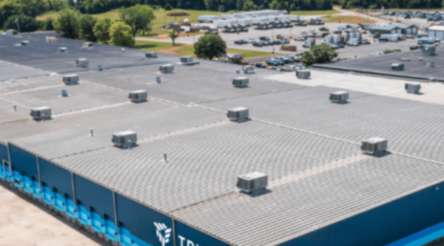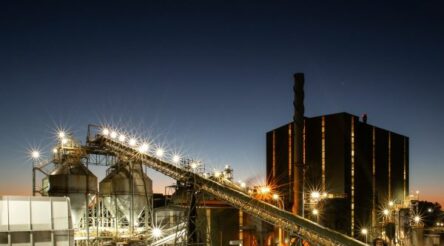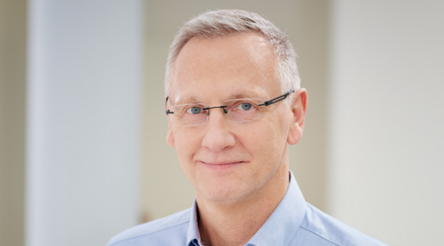“World firsts happen quite often” at Melbourne lab-on-a-chip developer
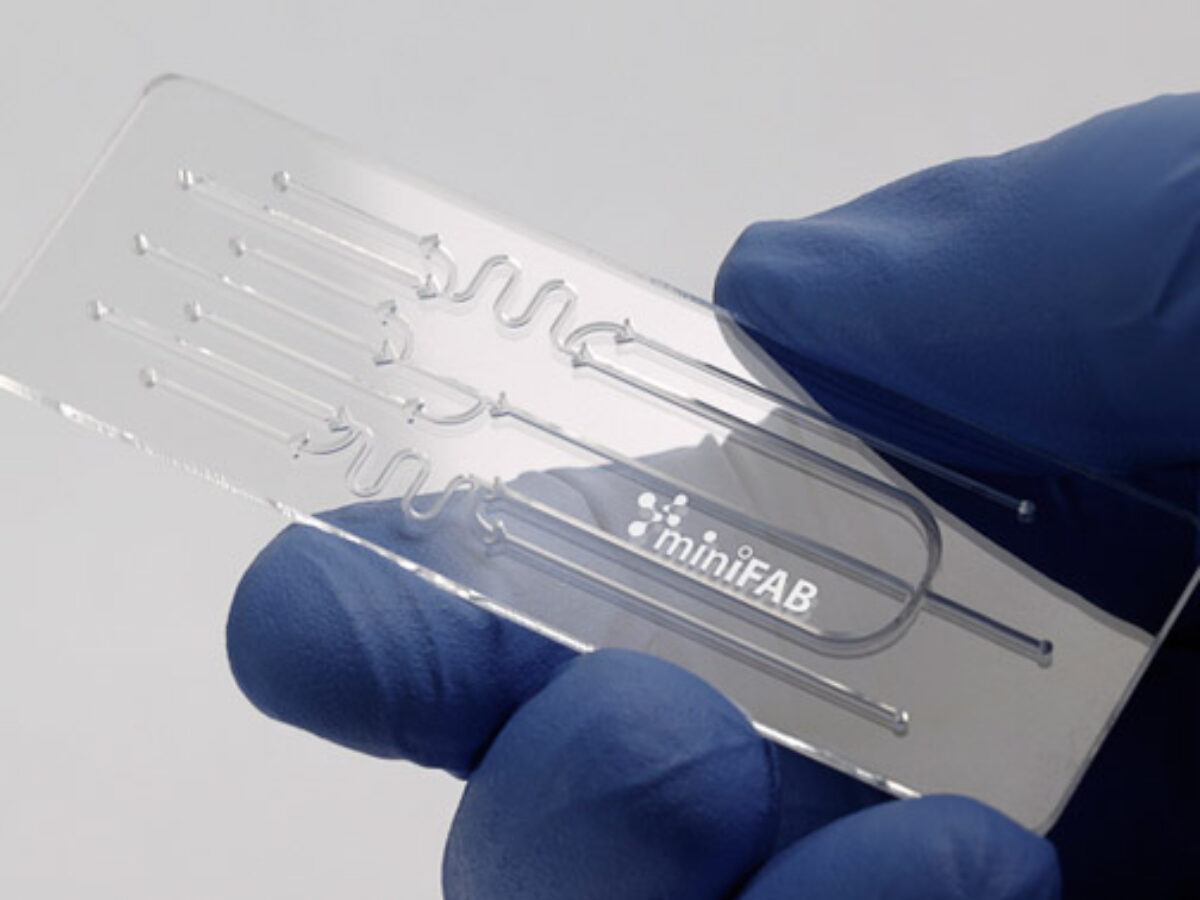
Brent Balinski speaks to Michael Wilkinson, co-founder at Minifab, about how it has prospered by taking tricky fluid problems off the hands of others.
Earlier this month, the multi-billion dollar German glass technology company Schott announced that it would purchase Minifab, an Australian contract engineering firm specialising in microfluidics.
Minifab is a quiet achiever – growing to 150 employees and earning awards at events such as the Clunies Ross and Victorian Manufacturing Hall of Fame over the years – and has had “to compete and win on the global stage from day one”. It has prospered by tapping into a trend of outsourced innovation, aiding in product development and manufacturing (almost entirely) for international clients needing expert help.
Michael Wilkinson, Minifab’s co-founder and acting CEO, provides a little context on the company and its work developing diagnostic devices for clients all over the world.
@AuManufacturing: Could you please tell me about starting the business in 2002? What vision did you and Dr Erol Harvey start out with? Where there many pivots before you decided on what you were good at and could successfully offer customers?
Michael Wilkinson: We started Minifab with a bold vision. We believed that a handful of Australian experts who were passionate about the future of microfluidics could compete a vast global market – and win. We initially provided a foundry service to our customers. We then evolved this to product design for our international customers. Then in 2007 we made a significant change direction and moved into manufacturing on polymer microfluidic products. This is now Minifab’s focus, to be the best in the world at the manufacture of polymer-based microfluidic devices.
@AuManufacturing: I read that 90 per cent of your work is international. Is this accurate? What does your client base look like?
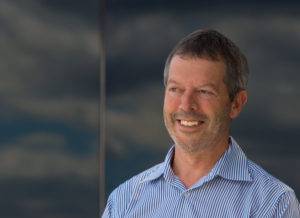
Michael Wilkinson (Picture: http://www.stcaustralia.org)
Michael Wilkinson: That’s right. Almost all of our current clients and future prospects are in the European, North American and Asian markets. It’s always been that way and it’s one of the unique aspects of our success story. Many Australian manufacturers start out servicing the local market and then expand overseas. For Minifab, however, we had to compete and win on the global stage from day one, as the local market is very small.
@AuManufacturing: Do you manufacture any end products for sale or is your work entirely development work for other companies?
Michael Wilkinson: Minifab is a contract manufacturing and product development firm. We partner with our customers to design, develop and manufacture ground breaking microfluidics devices on behalf of these clients.
@AuManufacturing: Could you please tell me about the skills within the company. Microfluidics isn’t a specific engineering discipline, so I imagine there’s a big mix of different types of engineering/scientific professionals.
Michael Wilkinson: Minifab brings together a diverse range of experts across microengineering, bioscience, precision manufacturing, automation and other disciplines. What binds these individuals together, and what makes them unique, is their specialisation in microfluidics. The products we create typically contain critical features at scales of just a few microns, and when you reach these scales the behaviour of materials, fluids and chemical reactions change dramatically. That means that being a world-leading bioscientists or a design engineer is not enough. You must also have an in-depth understanding of the world of microfluidics.
@AuManufacturing: What does innovation look like at Minifab?
Michael Wilkinson: Innovation is exactly what our clients demand of us and that’s why it is literally a daily focus for Minifab. We partner with clients to design, develop and manufacture game-changing point-of-care and life-science devices that can place the power of an entire lab in the palm of your hand. These products are revolutionising healthcare delivery, powering new discoveries, and changing the world. When you consider that, you can begin to understand the level of innovation that must be required. It’s no exaggeration to say that “world firsts” happen quite often at Minifab.
@AuManufacturing: Could you say something about major current trends you’re responding to or targeting?
Michael Wilkinson: We primarily develop and manufacture Point of Care In Vitro Diagnostic (IVD) Devices. These devices take specimens from patients such as blood, urine or tissue and deliver rapid diagnosis without the need for a centralised pathology lab. This rapid diagnosis, combined with the portable, disposable and low cost nature of the devices are delivering better patient outcomes versus traditional centralised pathology services. For this reason we are expecting to see continual growth in the POC IVD market for a long time to come.
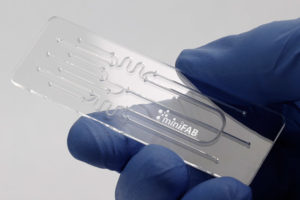
Picture: http://esvc000895.wic052u.server-web.com/our-services/
@AuManufacturing: What are some of the complementary strengths between Minifab and Schott? How will the acquisition benefit both companies? Do you see Minifab expanding much in Australia as a result of this?
Michael Wilkinson: Point of Care IVD devices are general based on either glass or polymer materials. SCHOTT is internationally renowned for its expertise in glass and Minifab is considered the world’s number one in polymer microfluidics manufacturing. By joining forces we can innovate in ways not possible before by offering customers the best in glass, polymer and hybrid solutions.
@AuManufacturing: Finally, please tell me about the planned polymers centre of excellence mentioned in the release. What will this look like in terms of facilities and employees?
Michael Wilkinson: The polymers centre for excellence mentioned in the media release is, in effect, already established in the form of Minifab Australia, based in Scoresby Victoria. Similarly the glass centre for excellence is the existing SCHOTT operation already based in Germany. The plan is to establish effective knowledge and technology sharing between those two centres to deliver better, more innovative solutions for our clients.
Subscribe to our free @AuManufacturing newsletter here.
@aumanufacturing Sections
Analysis and Commentary Awards Defence Manufacturing News Podcast Technology Videos







